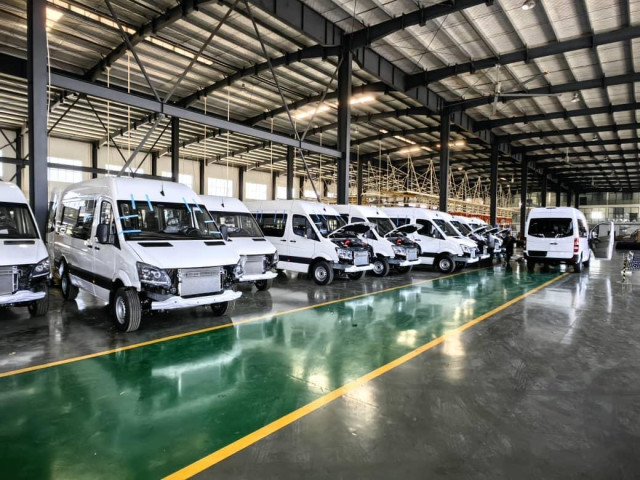The Federal Government of Nigeria has announced plans to reduce the annual importation of Premium Motor Spirit (PMS), commonly known as petrol, by approximately $4.4 billion by transitioning to the use of Compressed Natural Gas (CNG).
The government aims to convert one million diesel and petrol-powered vehicles to run on CNG as part of the Presidential Compressed Natural Gas Initiative.
This initiative is expected to save the country $4.4 billion annually on PMS importation.
The Coordinator of Regulations, Compliance and Facilitation at PCNGI, Zayyan Tambari, revealed the plans during a presentation at the Co-Creation Session on Nigeria Gas Vehicle Monitoring System in Abuja.
He noted that the government targets replacing 20% of the current 50 million litres of daily petrol consumption with CNG.
The Special Adviser to the President on Information and Strategy, Mr. Bayo Onanuga, had earlier explained: “The inauguration started with a conversion centre before they unveiled some CNG buses and tricycles. They have not given a date for Abuja. But the process has started."
Meanwhile at the co-creation session in Abuja on Tuesday, the PCNGI stated that about $890m investment would be required to develop infrastructure for the alternative fuel.
Also at the event, the Minister of State for Petroleum Resources (Gas), Ekperikpe Ekpo, who was represented by Abel Nsa, said the government would ensure that Nigeria reaps the full benefits of its gas resources.
Ekpo stated: “We are at the point where we need to begin to talk about the safety issues in the use of CNG. We have got to educate ourselves and we have got to use specific tools and materials hitherto that we have not been using
“Recall what happened in 2001-2009 with the emergence of the cell phone during (former) President Olusegun Obasanjo’s government, from an economic perspective, a lot is going to happen. It is going to give us a lot of tools on how to utilise CNG.”
The Executive Director, Distribution System, Storage and Retailing Infrastructure, Nigerian Midstream and Downstream Petroleum Regulatory Authority (NMDPRA), Ogbugo Ukoha, said new filling stations would only get licences when they are able to provide points for the dispensing of CNG.
“The authority is also engaging the stakeholders that would result in mandating fuel trucks and fleet owners and also facilities to convert to the use of CNG given the high cost of diesel,” he stated.
The Project Director/Chief Executive, Presidential Initiative on Compressed Natural Gas (PCNGi), Michael Oluwagbemi, said gas is cheaper, cleaner, safer and more sustainable for the economy, adding that Nigeria has more abundant gas resources than crude oil.
The PCNGi boss stated: “In doing this transition, we need to make sure that the transition is smooth and ensure that bad actors are identified and fished out, and that we all comply with the necessary basic technical regulations.
“In achieving this, we need the cooperation of all members of the ecosystem right from the point of inspection or conversion to the point of use and right from the point of manufacturing or importation of any part to the point of installation. There is an imperative need that we have a very strong regulatory regime.”




















